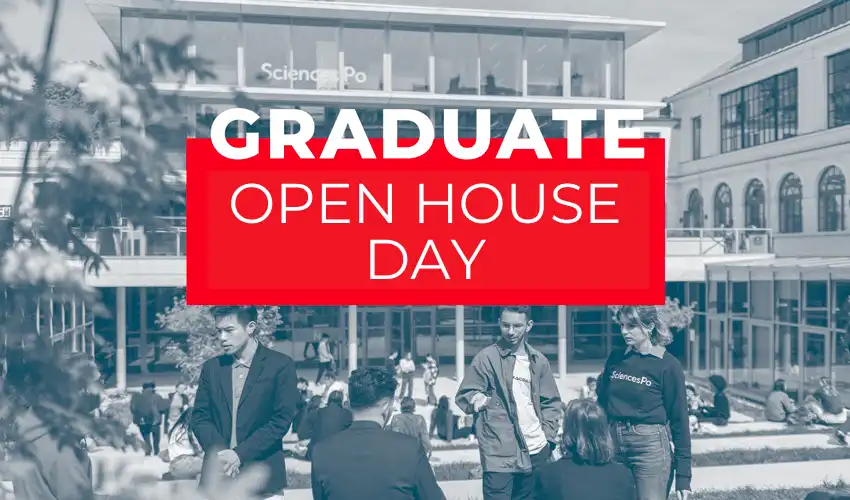Home>Mallaury Labarre, Class of 2019
01.02.2022
Mallaury Labarre, Class of 2019
CAN YOU DESCRIBE YOUR ACADEMIC AND PROFESSIONAL BACKGROUND?
After obtaining an economic and social science baccalaureate, I joined a literary preparatory course at the University of Poitiers in order to obtain a multidisciplinary degree in literature, political science and law. During my studies, I did a university exchange in the Czech Republic as part of the Erasmus programme, as well as an internship in a law firm.
I then wanted to specialise in international issues by doing a Master I at the Sorbonne-Nouvelle University in Paris, where I studied the political, legal and economic aspects of European and international institutions. I then went on to do a Master II in Public Affairs at the Université Panthéon-Assas, during which I did an internship with the Armed Forces headquarters. This first experience with the military world really accentuated my interest in security and defence issues.
Afterwards, I wanted to continue my studies at Sciences Po - the Security and Defence policy stream had just been created - and it was possible to do the second year of the master's degree as an apprentice. This is how I joined the Crisis and Support Centre (CDCS) of the Ministry of Europe and Foreign Affairs. In parallel with my classes and my work at the Quai d'Orsay, I also prepared for the administrative exams at Sciences Po.
Since July 2020, I have been working at the General Secretariat for Defence and National Security (SGDSN) as a Policy Officer for International Affairs and Industrial Security.
WHAT WERE THE MAIN STAGES IN THE DEVELOPMENT OF YOUR PROFESSIONAL PATH?
All the steps I have taken, academic, professional and personal, have been decisive.
My studies were mainly oriented towards public service, from the design of public policies to their implementation. Thus, joining the state civil service was a relatively obvious choice.
Also, my various experiences within military institutions, then in the diplomatic sphere, contributed to progressively refine my career plan. I discovered various environments, working environments and issues that stimulated my curiosity.
Finally, my professional path has also been built through the encounters I have had - both during my studies and during my first internships. I met professors and professionals, both from the public and private sectors, who inspired me to become interested in international affairs in general and in public security and defence policies in particular.
WHAT ARE THE MAIN CHARACTERISTICS OF YOUR POSITION TODAY AT THE GENERAL SECRETARIAT FOR DEFENCE AND NATIONAL SECURITY?
The General Secretariat for National Defence and Security (SGDSN) is an institution that reports to the Prime Minister. Although sometimes unfamiliar to the general public, the SGDSN plays a crucial role in the coordination of inter-ministerial security and defence policies. Its role was particularly important during the health crisis, as it acts as a watchdog for emerging risks and acts as the secretariat for defence councils, for example.
I am a member of the Directorate for State Protection and Security and am in charge of international affairs and industrial security. Among my tasks, I am responsible for the renegotiation of some sixty intergovernmental agreements between France and foreign partners. I also represent France on multilateral security committees dedicated to security issues, such as NATO.
My missions are quite diverse but driven by the same objective, which is to protect national interests while promoting international cooperation.
WHAT CONTRIBUTIONS DID YOUR STUDY AT THE SCHOOL OF PUBLIC AFFAIRS, AND MORE PARTICULARLY THE MASTER’S IN SECURITY AND DEFENCE POLICY MAKE TO THE POSITION YOU HOLD TODAY?
There were a lot of them!
Of course, the teaching provided within the policy stream was crucial as we had access to a large number of speakers from different backgrounds. I had the opportunity to follow courses delivered by professionals from the air and maritime sector, from consulting, from crisis management, etc., but also courses delivered by political leaders who were at the origin of public policies that the administration is now implementing.
Also, the events organised by the School or by the student societies, such as role-playing or thematic workshops, have greatly contributed to my open-mindedness, my knowledge of the administration and my international interactions.
DO YOU HAVE ANY ADVICE TO GIVE A STUDENT OR A FUTURE YOUNG GRADUATE?
Sciences Po offers all students the chance to build the career path they want, whether it be through a university exchange, an apprenticeship, a research paper or preparation for competitive exams... Everyone can therefore diversify their initial studies according to their wishes and desires. So, the advice I would give to students is to show curiosity by taking courses in another speciality, for example, to take part in conferences in another field or undertake projects in parallel.
For young graduates, the advice remains the same: the professional world is an inexhaustible source of learning. It is therefore necessary to be agile, sometimes daring, but above all to keep one's soul as a student in search of knowledge and experience.
learn more
Virtual Graduate Open House day, October 2025

On 18 October 2025: meet faculty members, students and representatives and learn more about our 30 Master's programmes.